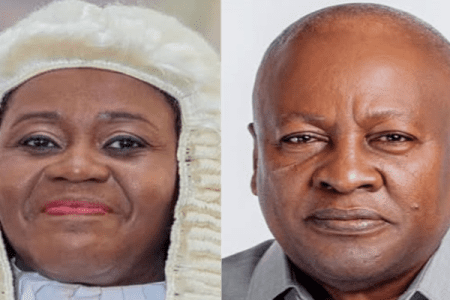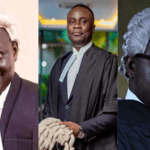The Commonwealth Lawyers Association (CLA) has issued a strongly worded statement expressing profound concern over the recent suspension of Ghana’s Chief Justice, Her Ladyship Justice Gertrude Araba Esaaba Sackey Torkornoo.
The suspension, effected by President John Dramani Mahama on 22 April 2025, has drawn significant criticism both within and beyond Ghana’s borders, with legal observers warning of potential repercussions for judicial independence and the rule of law in the country.
GBA challenges constitutionality of suspension
In its reaction, the CLA acknowledged and endorsed the position of the Ghana Bar Association (GBA), which has unequivocally called for the immediate revocation of the Chief Justice’s suspension.
The GBA’s argument is grounded in Section 146 of the 1992 Constitution of Ghana, which outlines a clear and rigorous process for removing judges of the superior courts.
According to this constitutional provision, a judge may only be removed from office for “stated misbehaviour,” “incompetence,” or proven “incapacity,” and such removal must follow a fair and structured inquiry initiated by the President and carried out by a committee established by the Chief Justice—or in this case, an alternative structure under the guidance of the Judicial Council.
The GBA contends that these standards were not met in the current case and therefore the executive action constitutes a breach of constitutional due process and an encroachment on the independence of the judiciary.
CLA cites international legal standards
In aligning itself with the GBA’s stance, the Commonwealth Lawyers Association drew attention to a broader body of international law and precedent that underscores the sanctity of judicial independence.
The CLA highlighted key frameworks such as the Commonwealth Charter, the Latimer House Principles, and the United Nations Basic Principles on the Independence of the Judiciary—all of which insist that judges enjoy secure tenure and should only be suspended or removed in accordance with transparent, fair, and rigorous procedures.
Of particular significance, the Latimer House Principles—adopted by Commonwealth Heads of Government—provide a roadmap for safeguarding the independence of the judiciary, including protections against arbitrary interference by the executive branch.
Any deviation from these principles, the CLA warned, could seriously undermine public confidence in the judicial system and set a troubling precedent for other Commonwealth countries.
Legal precedents
To buttress its argument, the CLA referenced the landmark judgment of the Privy Council in the case of Re Chief Justice of Gibraltar.
This ruling reaffirmed that the removal of a judge must only be contemplated where the conduct in question fundamentally undermines the administration of justice or public confidence in the judiciary.
The association also pointed to the Compendium on Judicial Tenure and Removal—an authoritative guide produced by the Bingham Centre for the Rule of Law.
The compendium underscores the importance of procedural fairness, proportionality, and due process in all cases involving judicial discipline.
The CLA acknowledged that temporary suspension could be warranted in instances involving credible and serious allegations. However, it issued a caution that the discretionary use of suspension powers must not become a political tool.
Such abuse, the statement warned, could threaten the structural independence of the judiciary and erode the rule of law—an outcome detrimental not only to Ghana but to democratic governance more broadly.
CLA urges transparent, lawful resolution
In its concluding remarks, the Commonwealth Lawyers Association called on all actors involved in the unfolding situation to ensure that the matter is handled with the utmost respect for legal norms—both domestic and international.
The association emphasized the need for transparency, procedural integrity, and an unwavering commitment to the constitutional safeguards that protect the judiciary from undue influence or intimidation.
The CLA reaffirmed its support for the Ghana Bar Association and pledged to continue monitoring the situation closely.
It noted that the strength of Ghana’s democracy depends not only on free elections and strong institutions but also on the ability of the judiciary to operate independently and without fear of political reprisal.
As the nation awaits further developments, legal professionals, civil society groups, and international observers will be watching closely to see whether Ghana upholds the principles that have long been considered hallmarks of its legal tradition.
- Commonwealth lawyers demand reversal of CJ’s suspension - 10 May 2025
- Cedi to resume depreciation in late 2025, S&P warns - 10 May 2025
- Debt restructuring, IMF deal, gold surge propel Ghana to S&P Upgrade - 10 May 2025

